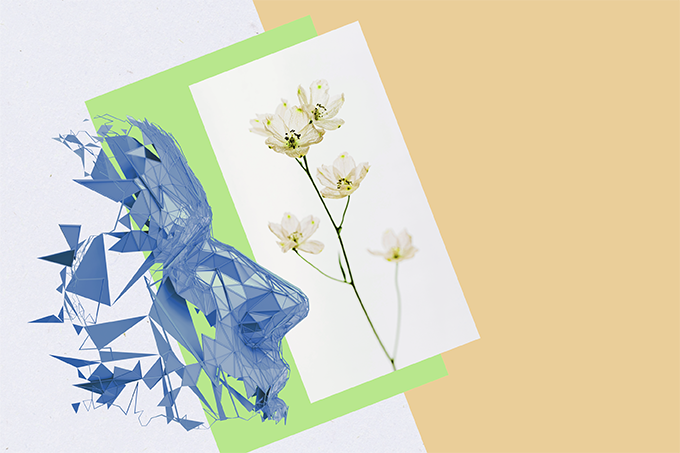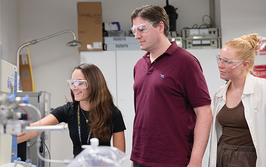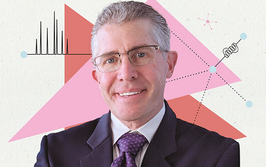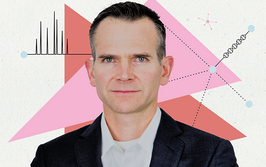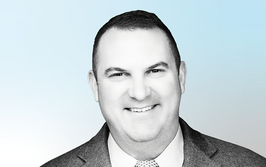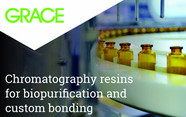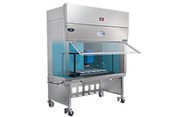Lessons I’ve Learned, with Hernan Cortes
Hernan Cortes spent three decades at the Dow Chemical Company, where he carried out groundbreaking research in multidimensional chromatography before saying farewell to the corporate world and setting up as a consultant. Here, Hernan shares what he’s learned about gaining recognition as an industry scientist, the chromatography ‘family’, and the secret to true happiness…
Hernan Cortes |
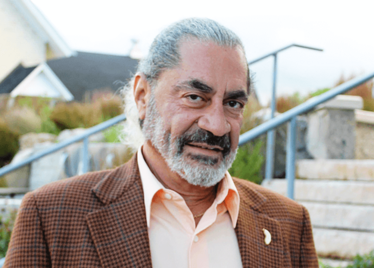
There are great opportunities in industry
I joined Dow in 1978, intending to stay for a couple of years; in fact, I worked there for 31, starting as a chemist and ending up as a senior scientist. My interest has always been in separations, and the company was very supportive of research in the field – Dow scientists invented gel permeation chromatography (GPC), ion chromatography, and hydrodynamic chromatography, among other notable inventions. The company provided the opportunity to do cutting-edge research in micro-column and multidimensional chromatography, to write, edit and publish a book, to publish close to 100 papers, and to interact with academics in the field.
Not many people in industry take advantage of the opportunities on offer. Being part of a large company – particularly working in analytical sciences – one gets exposed to a multitude of areas; I worked on everything from high polymers to pharmaceuticals and agricultural chemicals – and that breadth of experience enriched me.
I retired from Dow in 2009. For me, it was time to step out of corporate America – but it was a very fruitful and rewarding career, and I’m very proud to have been part of that organization.
Success means stepping outside your comfort zone
There are many incredible scientists in industry doing state-of-the-art research, but they tend to gain very little external recognition – either because intellectual property restrictions limit their ability to publish, or simply because industrial chemists tend to focus on more short-term problem solving and innovation. I have often worked with industry scientists who are world leaders in their field but aren’t widely known outside of that environment...
What I did differently from many industrial chemists was to take the time and effort to engage with academics – and to do independent research. I had the resources to carry out research, but I had to do it in my own time. I put in a lot of extra time at the lab during evenings and weekends so that I was able to conduct research (in addition to fulfilling the normal requirements of the job) and publish that work. I couldn’t always publish the particular application or problem I was working on, but I could publish the technology that was developed. I’m blessed to have had a supportive partner who stayed at home and raised our children, so that I could work 12–14 hours a day. I missed a lot while our children were growing up, but that sacrifice put me in the position that I’m in today.
Chromatography is a tightknit community
I would compare the chromatography community to a family. As in any family, there is some conflict and dysfunction, but its members have helped me and driven me to do better. People like Cal Giddings, Milos Novotny, Pete Carr, Jim Jorgenson, Milton Lee, Luigi Mondello, Pat Sandra and Mark Schure – among others – have encouraged, challenged and inspired me along the way. I respected them, and wanted them to respect me – and the best way for me to achieve that was by doing good science and demonstrating that I was willing to contribute to the community.
New ideas are often met with resistance
When a disruptive thought or new technology enters the scene, it’s been said that the first reaction is usually “it’ll never work”. The second reaction is “it works, but in very limited cases”, the third reaction is “I guess it can be applied to some things” and the fourth and final reaction is “of course, it works - it was my idea!” Some of you have been there...
I’ve always tried to push the boundaries and explore different ideas. I like to extrapolate from theoretical principles and ask “What if...?” Some of my innovative work occurred when we coupled LC to GC in the mid-1980s. I was collecting fractions off a prep column – incredibly boring work. Automation was not what it is now. I thought, “What if I run this through a miniaturized LC and put the eluting fractions directly into a GC?” To my surprise, it worked well, and opened up a whole new avenue of research for me. We also got into the LC-LC, GC×GC and LC×LC areas relatively early, and used these technologies to solve a number of industrial problems.
If you have an idea, pursue it
In my early days, when I tried to do something original, I was often told, “We’ve done this before.” And as we get older, it’s tempting to think that it’s all been done before, but that’s something we must fight against. I avoid telling younger researchers that something has been done before; instead, I ask if they have researched the literature thoroughly.
Even if it has been done before, I would never discourage them from pursuing an idea. Why? Because a small variation may produce valuable results. In science, breakthroughs are very few and far between; most progress is incremental. Even a small improvement could be valuable. Look at a gas chromatograph in the 1970s versus one today – it’s the same technology, but you wouldn’t recognize the instrument; hundreds of incremental improvements in injection, column design, and detection have made today’s instruments incredibly powerful.
Don’t be afraid to go against the prevailing view
We started doing electro-driven chromatography in the early 1980s, when the field was still in its infancy. We wanted to see if we could get better efficiencies in liquid chromatography with this approach; the theory suggested that you would get a flatter flow profile than you do with conventional flow. After a lot of work, we published a paper in Analytical Chemistry that suggested that it was actually not the best approach. Many people are still working in what’s now known as capillary electrochromatography, but it has unfortunately failed to enter routine use – for many of the reasons we expressed in that paper. At the time, I faced a lot of criticism but, over 30 years later, it’s somewhat satisfying to observe that our conclusions were valid.
Similarly, we did some early work on what are now called monoliths. Some of our catalyst chemists were creating structures made of silica, and it seemed obvious to use them in chromatography. We borrowed the technology from them with high hopes, but our experiments suggested that they were simply not good enough to rival existing technology, so we didn’t pursue it. One mistake I made was not publishing that work, because I considered the project a failure. I have since learned that negative results can also provide valuable information! I believe it was the first time that chromatography had been done on those surfaces. Today, I still think it’s very difficult for monoliths to compete with packed columns...
To make a difference, you must translate data into knowledge
As an analytical chemist, I would say there are three levels at which you can work: first, generating data (as in quality control); second, translating data into information; and finally, translating that information into knowledge – this final stage is where you get the payoff. You can spend your career running samples, but making the transition from data, to information, to knowledge is where one can make a true contribution. Making those jumps requires you to go beyond analytical chemistry – you need to understand organic chemistry, physical chemistry, catalysis, polymer chemistry, and more.
I use the term ‘measurement science’ rather than ‘analytical chemistry’
In any scientific endeavor, if you can’t measure it, you’re not going to get anywhere. That’s why measurement science is fundamental to all fields – and one must understand the theory to conduct good measurement science. Consider a gas chromatograph – you don’t need to know gas chromatography to use it, you don’t even need to know what’s inside the oven. You can just walk up to the instrument, inject a sample and get data. Anybody can do that, but it doesn’t mean you know what to do with that data, let alone come up with something new. Analytical chemistry gets a bad reputation because essentially anybody trained can do it, but the thing to remember is that not just anyone can do it well – or innovate.
Never stop learning, never stop teaching
Even if you are at the top of your field, you should always be open to new subjects. I think the moment you stop learning is the moment you die. Currently, I am learning about biocatalysis, which previously I knew nothing about. I have collaborated with the University of Tasmania and the University of Messina in both a learning and teaching capacity. I think that passing on our knowledge and experience to the next generation is an important responsibility for scientists as we get older – otherwise it can be lost. There’s nothing I enjoy more than helping a talented young person succeed.
Stay true to yourself
We all have our own personal values – the things that drive us – and it’s always been important to me that I did not compromise those for any reason. For me, some important drivers are the pursuit of knowledge, the ability to express my creativity, and the quest for spiritual enlightenment – however you choose to define that. Why am I here? What is the meaning of life? Where do I fit? I think it’s important to ask those big questions. In addition, helping other people and continuing to move the scientific field forward are fundamental values that I live by. I have a desire to give to society – I believe in recycling some of the blessings I have been lucky enough to receive.
Success is hard to pin down
Success means something different to everyone, and I don’t think there’s a specific roadmap that one can follow, but I think there are three elements: you have to be intelligent; you have to work hard; and you have to find an opportunity. You can be very intelligent and work really hard, but if an opportunity doesn’t arise, then you may not succeed. On the other hand, you may have all the opportunities in the world, and be very intelligent, but if you don’t apply yourself you are likely to achieve nothing.
Even very successful people have some degree of insecurity. It’s human nature that we are never really satisfied – there’s always that desire for more. And that’s why I tell my kids not to ask “Am I happy?” Instead, I tell them to ask “What is my happiness percentage?” No one is 100 percent happy all the time. If you are in a situation where you are only 40 or 50 percent happy, perhaps you should look to change it. If you are 60–70 percent happy, you’re doing pretty well. If you’re 80 percent happy, you’re golden.
Hernan Cortes is Principal at H. J. Cortes Consulting, LLC, Midland, Michigan, USA.
Hernan Cortes spent three decades at the Dow Chemical Company, where he carried out groundbreaking research in multidimensional chromatography before saying farewell to the corporate world and setting up as a consultant.
